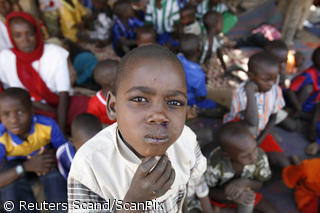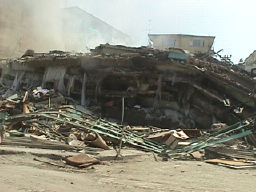Future gangster is "Don Corleone behind a laptop".
Published:
8 September 1999 y., Wednesday
In the next decade, the world_s crime fighters say they will fight international organized crime on several fronts, battling financial fraud, corruption, the sale of human beings for sex and labor and the trafficking of weapons of mass destruction. The focus of a three-day crime-fighting conference at Garmisch-Partenkirchen (Germany) sponsored by the FBI and the George C. Marshall European Center for Security Studies was touted in advance- as an assessment of organized crime_s impact on national security. But the meeting of American, European and Eurasian top brass ended Thursday with little open discussion of such forecasts. Organizers admitted the conference fell short of that objective, but said other goals had been achieved, namely the forging of new East-West relationships between law enforcement officials. One senior U.S. law enforcement official involved in planning the event told APBNews.com it was difficult to get officials from the former Soviet republics to open up and discuss their problems and worries over mobsters operating in their fledgling democracies. Author and criminologist Joseph Albini, of Indiana_s Wayne State University, said he estimates that as early as 2000, more than 90 percent of those involved in organized crime will be computer literate on some level. "The conception of Don Corleone [from the "Godfather" movies] smoking a cigar is better seen as Don Corleone behind a laptop," he said. It is the access to mass media information and the technology boom that are changing the face of mobsters from thugs to super-criminals, Albini said. Kulikov echoed that view. "We are at the threshold of a new millennium. We have to be prepared for the emergence of new types of criminal activity," including technological, he said. The retired Russian general clicked off a number of examples, including trafficking illegal genetically-engineered human organs and crop seeds. A senior intelligence officer from Great Britain who specializes in organized-crime analysis said tomorrow_s gangsters almost certainly will be consumed with electronic commerce, particularly online gambling, credit card fraud and virtual banking, where a financial institution exists solely in cyberspace. Another possibility, he said, is the theoretical notion of virtual-reality narcotics, which assumes it is possible to transmit a digital "stimulant" or hallucinogen across the Internet, creating a new form of addiction. "Biotechnology and information technology are the two biggest revolutions of this century, and we should look at each of them and see where the potential for money is from the criminal point of view," the official told APBNews.com, requesting anonymity.
Šaltinis:
APBNEWS.COM
Copying, publishing, announcing any information from the News.lt portal without written permission of News.lt editorial office is prohibited.
The most popular articles
 The fact that over 80% of the world's children live in the developing world with a poor quality of life is the reason Europe “should take positive action”, according to Glenys Kinnock.
more »
The fact that over 80% of the world's children live in the developing world with a poor quality of life is the reason Europe “should take positive action”, according to Glenys Kinnock.
more »
 Houses collapse on the outskirts of La Paz Bolivia.
more »
Houses collapse on the outskirts of La Paz Bolivia.
more »
 In a remote corner of Siberia children with disabilities are being offered a helping paw.
more »
In a remote corner of Siberia children with disabilities are being offered a helping paw.
more »
 In Hungary every February The Buso men march through the streets hoping their efforts will help usher in the spring.
more »
In Hungary every February The Buso men march through the streets hoping their efforts will help usher in the spring.
more »
 Besides fostering dialogues among the world's most influential chefs, the event also is aimed at promoting Japanese food culture to the world.
more »
Besides fostering dialogues among the world's most influential chefs, the event also is aimed at promoting Japanese food culture to the world.
more »
 A new trend in fake fashion is taking China by storm.
more »
A new trend in fake fashion is taking China by storm.
more »
 When it comes to social protection, the EU has some of the strongest laws on the books.
more »
When it comes to social protection, the EU has some of the strongest laws on the books.
more »
 The Taj Mahal is under threat - a series of cracks have appeared in the walls of the structure.
more »
The Taj Mahal is under threat - a series of cracks have appeared in the walls of the structure.
more »
 French and Danish journalists share first prize in the 2008 journalist award "For diversity, against discrimination".
more »
French and Danish journalists share first prize in the 2008 journalist award "For diversity, against discrimination".
more »
 Rallies can be used to pump up people's enthusiasm for all kinds of things but here in Japan schools and colleges are drafting in teams of cheerleaders to boost enthusiasm among students about to enter the jobs market.
more »
Rallies can be used to pump up people's enthusiasm for all kinds of things but here in Japan schools and colleges are drafting in teams of cheerleaders to boost enthusiasm among students about to enter the jobs market.
more »